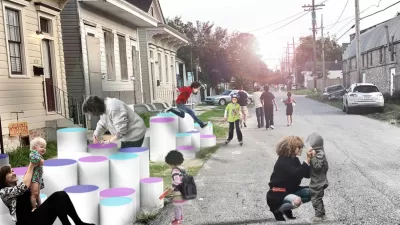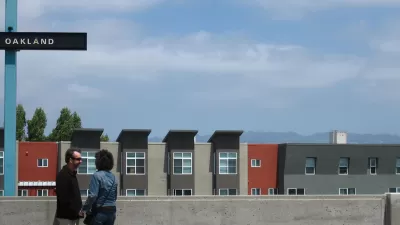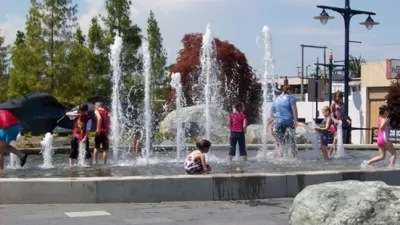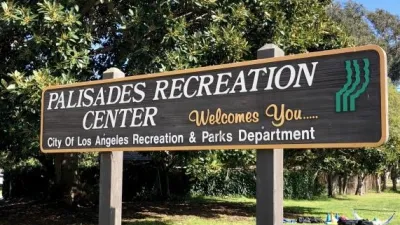KaBOOM! announced the winners of the Play Everywhere Challenge this week.

Gail Cornwall reports: "[KaBOOM!] "awarded $1 million to spur 50 new projects that create opportunities for urban children to play at places like bus stops, barber shops and Laundromats."
Cornwall highlights some of the inners to showcase the creativity and variety of the winning projects. Among the winners:
- A "giant solar-powered bubble maker that on sunny days will send bubbles drifting over a busy Minneapolis thoroughfare,"
- "periscopes built out of PVC tubes at East Harlem bus stops,"
- "retractable jump ropes outside barber shops and salons in Richmond, Va.,"
- "sidewalks in Detroit "repainted to resemble sprinting tracks,"
- and slides that "pop up next to stairways used to commute through the slopes."
Each of the winning projects has its own project page on the KaBoom! website.
The 50 winners were chosen from more than 1,000 entries. The Play Everywhere Challenge has support from the Robert Wood Johnson Foundation, Target, Playworld, the U.S. Department of Housing and Urban Development, and the National Endowment for the Arts.
FULL STORY: Giant Bubbles and Urban Periscopes Among Winners of Play Contest

Maui's Vacation Rental Debate Turns Ugly
Verbal attacks, misinformation campaigns and fistfights plague a high-stakes debate to convert thousands of vacation rentals into long-term housing.

Planetizen Federal Action Tracker
A weekly monitor of how Trump’s orders and actions are impacting planners and planning in America.

In Urban Planning, AI Prompting Could be the New Design Thinking
Creativity has long been key to great urban design. What if we see AI as our new creative partner?

King County Supportive Housing Program Offers Hope for Unhoused Residents
The county is taking a ‘Housing First’ approach that prioritizes getting people into housing, then offering wraparound supportive services.

Researchers Use AI to Get Clearer Picture of US Housing
Analysts are using artificial intelligence to supercharge their research by allowing them to comb through data faster. Though these AI tools can be error prone, they save time and housing researchers are optimistic about the future.

Making Shared Micromobility More Inclusive
Cities and shared mobility system operators can do more to include people with disabilities in planning and operations, per a new report.
Urban Design for Planners 1: Software Tools
This six-course series explores essential urban design concepts using open source software and equips planners with the tools they need to participate fully in the urban design process.
Planning for Universal Design
Learn the tools for implementing Universal Design in planning regulations.
planning NEXT
Appalachian Highlands Housing Partners
Mpact (founded as Rail~Volution)
City of Camden Redevelopment Agency
City of Astoria
City of Portland
City of Laramie





























